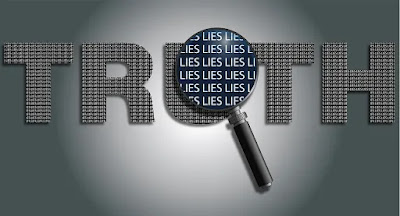"The Quest to Beat High Gas Prices"
by Lora Kelley
“I SOLD MY GIRLFRIENDS CAR CAUSE GAS PRICES ARE HIGH,” reads the caption on the video Justice Alexander posted online this spring. In the clip, Alexander, a content creator in Los Angeles, sits atop a horse and declares that he will now travel on horseback. The video, which has been viewed nearly 10 million times so far on TikTok, struck a nerve. While Alexander later said that it was a stunt - an Instagram follower lent him the horse and his household still drives - the sight of him in stirrups, staring defiantly off into the distance, captured a once-in-a-generation moment of angst. Gas prices are at record highs. Even when adjusting for inflation, they are on average at levels rarely seen in the past half-century.
Beyond posting absurd public displays of frustration, many Americans are grasping for ways to save money by changing work hours or by weighing the algebraic trade-offs of driving farther to find a cheaper pump. Some recognize they have few options to avoid paying more, especially when commuting is a matter of keeping a job or not, but others have been learning to make new trade-offs and crafty calculations. “It’s all about doing the math,” said Ava Patterson, a 25-year-old server at a seafood restaurant in East Peoria, Illinois.
When she notices her tank running low, Patterson gets out her phone and starts strategizing. Before she leaves her home about 30 minutes from work, she checks GasBuddy, an app that shows prices at nearby stations. She then calculates what the total price at a given station will be to fill her tank when she stacks one of her three gas rewards accounts on top of the listed price. Patterson also stops at pumps in small farming towns on her route, where gas tends to be a bit cheaper, she said, and reports rates to GasBuddy to earn points to be entered in a raffle for free fuel. All told, these workarounds can save her up to $2.30 per tank. These days, it generally costs her about $80 to completely fill her 2017 Hyundai Sonata.
Patterson has recently been trying hard to cut down on driving. She does not attend practices for her recreational softball league about an hour away. She has also been rethinking her work schedule. “I started doing more doubles because I want to make sure that it’s worthwhile to drive the distance to work,” Patterson said. “I’m a waitress, so the money that I make fluctuates. It’s made me hesitate on when I want to leave the house.”
According to a survey from AAA conducted earlier this year, 75% of American adults said they would start changing their lifestyles and habits when gas hit $5 a gallon. Andy Gross, a spokesperson for AAA, said demand for gas dipped the week of June 18 for the first time in three weeks, possibly because of increased prices. Those who didn’t drive much before, for environmental or lifestyle reasons, are cutting back further. But for the most part, people are still driving as much as they had been. For some, that has meant, paradoxically, driving farther to find cheaper places to fill up - even if it’s a matter of only saving a few dollars.
Tawaine Hall, 36, a network engineer in Fort Worth, Texas, said he has driven 45 minutes from his home to take advantage of gas prices that were around $1 less than those near where he lives. He said he also buys Walmart gift cards, which provide a discount at Walmart gas stations.
Jordan Rowe, 27, has driven 25 minutes out of his way to go to a station that accepts the Exxon Mobil rewards app that he downloaded this year, to earn points toward future purchases. An assistant general manager at a McDonald’s near Richmond, Virginia, he commutes about 45 minutes each day to work. He has started giving friends rides to work, as well.
In some cases, the high costs have given rise to carpooling and other shared commuting options. Jennifer Gebhard, executive director of the Central Indiana Regional Transportation Authority, said that during the pandemic, her team operated a fleet of 10 vans. Now, there are 30. “Especially in the Midwest, we’re a very drive-by-yourself community,” she said. But many local employers have reached out to her office about setting up van pools for their staffs in recent months. Passengers split the cost.
“A hack I would love to have is carpooling,” Alexa Lopez said. But she has not found a viable option near where she lives in Kissimmee, Florida. She has a long commute: 51 miles each day from her home to her job at a plumbing supply company in Melbourne, Florida. So to save money on gas, she has cut down on extracurricular driving, as well as some more essential activities.
Lopez, 30, used to make trips to the grocery store without thinking twice. Now, because of inflation and the high price of getting herself to the store, she goes only every two weeks. Previously, she said, she would buy “anything and everything,” including snacks like chips for her son. “I can’t really buy too much of those anymore.” She added, “I’m feeling like pretty much the average American right now: struggling.”
For the first time in years, some who had been doing relatively well are facing hard trade-offs. As the war in Ukraine and the pandemic continue to roil the economy, concerns are growing that the U.S. economy may be on the brink of a recession. People are moving to ease their commutes. Family visits are being minimized. Future savings are being funneled toward ballooning grocery prices. It has been a hard jolt.
Elizabeth Hjelvik, 26, a graduate student in materials science at the University of Colorado at Boulder, watches her budget closely. She recently started riding her bike to campus. She has also started working from home more often, using her parents’ Kroger fuel points to fill up the tank of her 2005 Honda and cutting back on spontaneous weekend trips. Hjelvik recalled saying, as she and her partner were recently driving back from a trip to Fort Collins, Colorado, about 50 miles away, “This drive is so beautiful, but it might be something we can’t do in the future.” Her family lives in New Mexico, within driving distance of Boulder. “Ideally we would be able to go see them more often, but it’s a lot of gas,” she said.
Kaitlyn Thomas, 25, a medical resident living in Horseheads, New York, said she sometimes Googles gas prices in nearby Pennsylvania. She also has a running note on her phone where she tracks what’s advertised at the stations she passes on her commute. Next week, she is moving to Sayre, Pennsylvania, to live within walking distance of work.
Laura Romine, 22, took the balancing act a step further: She moved into her van two years ago to save money and to travel. “Now it’s really not saving that much money,” she said. She keeps her van parked more and avoids traveling.
Gas prices have started to inch down across the United States in the past week, AAA data shows. As of Friday, the average was $4.93 a gallon, compared with $5 a week ago. But economists and industry analysts predict that prices will stay high in the near term, especially as the summer travel season continues and the global energy market remains uncertain. High prices are reaching every corner of the American consumer economy, and fuel costs are having a similar effect.
The cost of diesel, which fuels many commercial buses, vans and trucks, has also risen this year. That has forced companies to rethink how they conduct their business. Near Scottsdale, Arizona, where Eddie Perez owns a party bus company, it’s common to have vehicles idling while customers are at bars or dinner, partly to keep them cool during blazing hot months. He has told his drivers to turn off the buses when possible, and he has raised his prices.
George Jacobs, CEO of Windy City Limousine and Bus Worldwide in Chicago, said that rising diesel prices have “just decimated us.” To try to save fuel, his team has closely monitored software that shows if any of his buses are idling, and that flags whether the buses are traveling at the most efficient speeds. He is exploring the idea of adding electric buses to his fleet, as well as other ways to make his operation more efficient. In the meantime, he said that his drivers try to purchase gas out of state, like in Indiana, when they are on the road. “Any time we can fuel up outside of Cook County we do that,” he said. “It’s very serious money.”
○
Today’s AAA National Average $4.908.
Price as of 6/25/22.
























